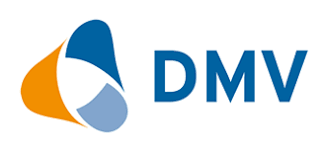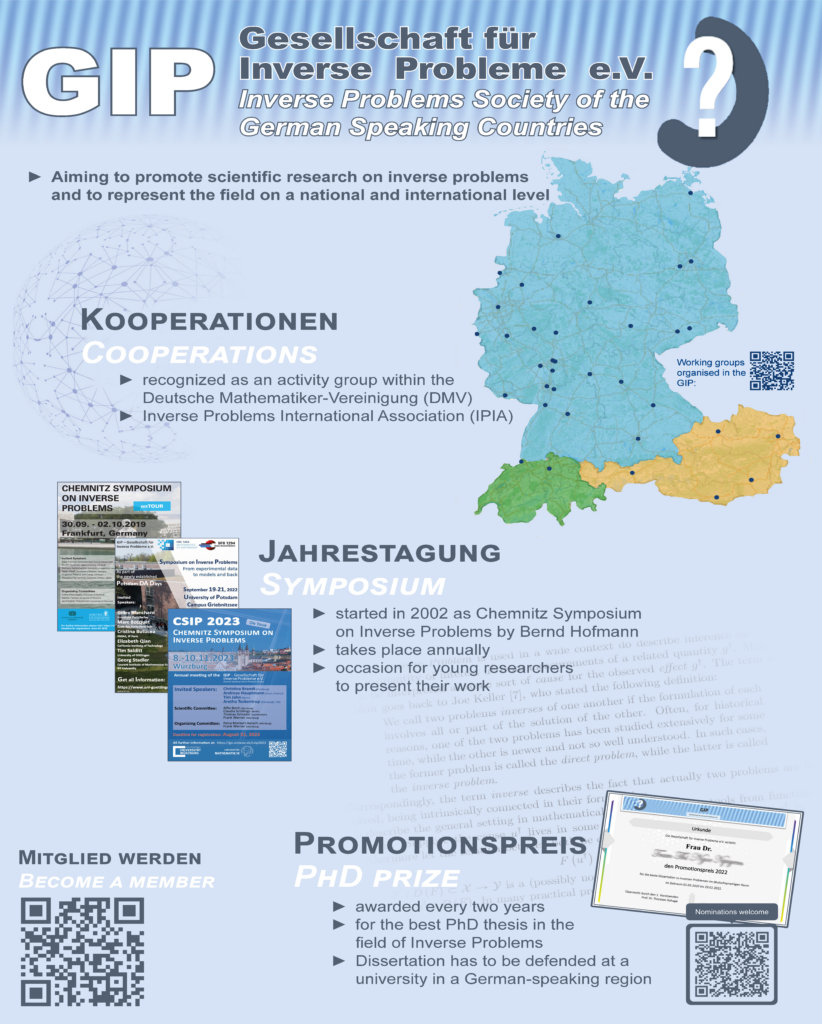… to the web pages of the German Speaking Inverse Problems Society. The aim of this society is the promotion of scientific research on inverse problems and the representation of this field on a national and international level. For this purpose, the society awards a prize for the best PhD thesis on inverse problems in German speaking countries every two years and organizes regular international workshops in the tradition of the Chemnitz symposium on Inverse Problems.
The Gesellschaft für Inverse Probleme e.V. was founded on September 30, 2019 and officially registered on January 9, 2020.
Since September 2022 the GIP has been recognized as an activity group within Deutsche Mathematiker-Vereinigung (DMV).

Moreover, GIP cooperates with the Inverse Problems International Association e.V.
Under the link you find the GIP poster for downlaod.

What are inverse problems?
Inverse problems usually consist in finding causes for observed effects. Examples are imaging methods in medicine, engineering, and the natural sciences such as computerized tomography, magnetic resonance imaging, electron microscopy, seismic imaging or optical nanoscopy (e.g. STED or SMS), among others. In many cases the determination of effects from given causes, the so-called forward problem, can be modelled by differential equations. This leads to inverse problems where some part of a differential equation such as a coefficient function, an initial or boundary condition or the shape of a domain has to be determined from observations of part of the solution to the differential equation.
On 19 July 2024 our member Prof. Dr. Dr. h.c. mult. Alfred K. Louis unexpectedly passed away. He was one of the most renowned researchers in the field of inverse problems. Please find here an obituary.
The link leads to a statement of the German mathematical societies addressing the subject “Why is mathematics for Artificial Intelligence indispensable?”, emphasizing that AI ties also significantly in the field of mathematics and not only in computer science.
